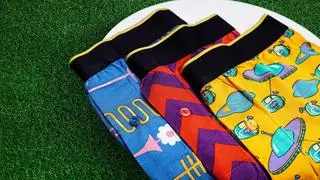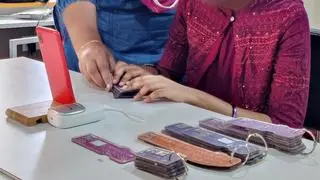We saw how India seems to score poorly compared to other nations in the World Bank’s Doing Business report. Recently, EY rated India highly as an investment destination.
But somewhere between both extremes sit small ideas of merit that are scalable but aren’t making a splash in the news of millions of dollars of funding won by this or that start-up. Take Waah!, for example. “I used to travel a lot and when I felt thirsty and needed clean drinking water I had to pay ₹20 for a litre of bottled water. Just the price and all the plastic pollution created from discarded bottles and pouches disturbed me. So on observation and research, I felt that the entire packaged water industry is being illogically run,” says Vineet Vats, founder of Waah!. His plans are to disrupt the water industry.
No stone unturned From how to provide clean water at affordable rates to creating micro-entrepreneurship, and offering hygienic options to the thhelas (trolleys) that sell water in parts of North India to how much plastic pollution could be avoided, Vats has thought of everything.
“What is the point of creating a big centralised plant at one place, sucking all the water from that place and illogically transporting it 200 or 300 km? In our model, we’ve reduced the logistics to about 15 km. That reduces diesel pollution.
“And just one mobile unit is capable of eliminating a minimum of 3,500 kg of plastic waste from the environment,” says Vats.
Fool-proof, frugal An investment of ₹2.5 lakh in a water vending unit can be assisted by loans to the operator, who may on an average earn ₹20,000 a month. Vats wants to utilise purification plants across States that aren’t being used to capacity.
The pilot project, an installation at the Botanical Garden metro station in Noida, has reportedly received an overwhelming public response. “You put in a ₹2 coin into the vending machine, you get a recyclable paper cup and 250 ml of chilled RO water.
“We’ve built in sensors to gauge the quality of water being dispensed and it’s displayed in real time. Even if something disturbs the quality of water, the machine will be shut down by a cloud application. It only works again when a technician fulfils all service protocols,” explains Vats. Between mobile water vending units (e-rikshas) and static water ATMs, he wants to expand Waah!’s reach across Delhi and other States. Delhi alone needs 10,000 water vending units.








Comments
Comments have to be in English, and in full sentences. They cannot be abusive or personal. Please abide by our community guidelines for posting your comments.
We have migrated to a new commenting platform. If you are already a registered user of TheHindu Businessline and logged in, you may continue to engage with our articles. If you do not have an account please register and login to post comments. Users can access their older comments by logging into their accounts on Vuukle.